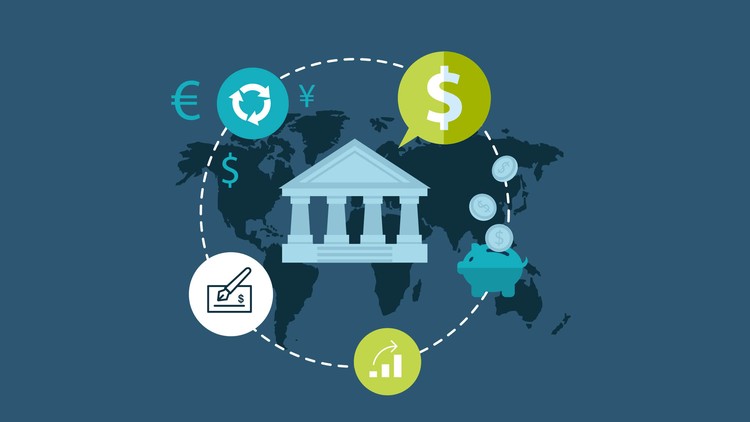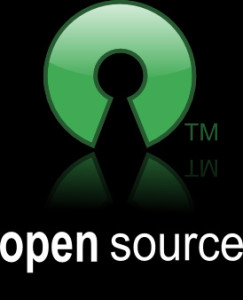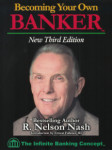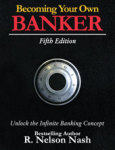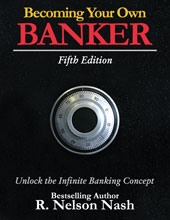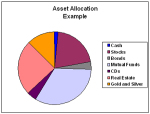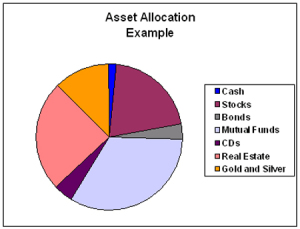by R. Nelson Nash
Author of Becoming Your Own Banker
Article originally published in the April issue of BankNotes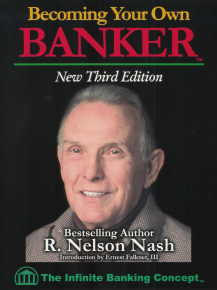
Some years ago, the late Nobel prize-winning Dr. Albert Schweitzer was asked by a reporter, “Doctor, what’s wrong with men today? The great doctor was silent a moment, and then he said, “Men simply don’t think!”
Surely, by this time in your life, you have a deepseated feeling that there is something fundamentally wrong in the financial world today. There is debt of unbelievable proportions! There is confused thinking that results in irrational behavior as a matter of course. We are treated to a plethora of information daily to substantiate this truth.
As a result of all this, I see a lot of despair and anguish expressed by a large segment of our population. I really think that it is the feeling of most people. They are saying, “What a mess we are in! What are they going to do about it? We need to get the right folks in our government offices! Get out and vote! That is our only hope!”
Of course, there is another large faction that is totally consumed with apathy. They don’t have a clue as to what has happened – and what is currently happening. You see them – and you can identify them – so I don’t see a need to elaborate this point.
The fact that you are taking the time to read this article indicates that you are searching for an answer to financial matters in your life. We hope that the efforts of the Nelson Nash Institute will be of benefit to you. Thank you for your search. The solution to any money problem begins there.
What happened to cause this deplorable situation?
These things just don’t happen by chance. There is always an underlying cause.
How Did Governments Build A Trap To Enslave People Financially?
Here in the United States two significant events occurred just over one hundred years ago:
1. The Income Tax Law – October 3, 1913
2. Adoption of the Federal Reserve Act – December 23, 1913
But, something else occurred 100 years ago: World War I – a tragic event! One that should never have happened! It was the result of unsound thinking by government leaders.
Notice that the Income Tax Law was adopted one year before WWI, and the Federal Reserve preceded WWI by just eight months.
Why is this significant? Study history and you will find that during the War of 1812 an attempt to adopt an income tax failed. Citizens wanted no part of another tax to fund the war. Apparently we had a greater proportion of clear thinkers at that time than we have today.
So – what to do? Plan ahead – because the “powers that-be” knew full well that war was imminent. But, in order to gain public acceptance create the means of funding it before the war starts! But, use some other reason for doing so! This form of deflection is necessary in order to fulfill the hidden agenda.
Wars cost lots of money! Who benefits from all this? History is clear – International Bankers, that’s who! They not only create wars but also actually financeboth sides! If you haven’t figured this out, then you need to start studying history. As a starting place please study the lives of the preeminent Rothschild banking family. Take note that it was the patriarch Rothschild, Mayer Amschel Rothschild, who famously proclaimed, “Give me control of a nation’s money and I care not who makes the laws.”
On our website www.infinitebanking.org you will find a resource tab. Click it on and then click on the Recommended Reading List. There you will find a large selection of books on economics and history that will help you in your search for the truth about the financial world and the ways bankers carry out their goals. A good starting book to read would be The Law by Frederic Bastiat. Then read Economics in One Lesson by Henry Hazlitt.
A word of caution – this action can lead to a beneficial compulsion to continue reading all the books listed there!
For instance, are you aware of the characters at Jekyll Island, Georgia who designed our Federal Reserve System? It is well acknowledged that the chief driving force of this scheme was Paul Warburg, a Germanborn banker. The mismatch between the story the public receives, versus what really happened behind the scenes, has rarely been so large as it was with the founding of the Fed and the advent of World War I.
For example, are you aware of how this central bank idea was made into law by Congress in late December 1913, while most Americans were busy celebrating Christmas with their families? There is plenty of information available to teach you the real history of how all this came to be if you will simply search the right sources.
Let me issue a warning that some revisionist authors make unwarranted leaps and see sinister plots when there is really a much simpler explanation, but that doesn’t mean the entire genre is misguided. A careful student of history will see that the public has been systematically misled about the origin of our modern banking institutions; this was not all designed “forour benefit.” It is not the purpose of this article to show you all this information. My purpose here is to challenge you to read and think!
Removing The Blinders
“The ideas of economists and political philosophers, both when they are right and when they are wrong are more powerful than is commonly understood. Indeed, the world is ruled by little else. Practical men, who believe themselves to be quite exempt from any intellectual influences, are usually slaves of some defunct economist.”― John Maynard Keynes
Probably the greatest source of our disastrous financial situation can be laid at the feet of Lord Maynard Keynes with his book, The General Theory of Employment, Interest, and Money, published in 1936. Keynesian thinking has the entire world in a death grip. I well remember Richard Nixon, in a speech on TV saying, “We are all Keynesians now!” He absolutely did not speak for me, but that is the method that such leaders use to induce people to think the way they do.
Only the Austrian School of Economic thought is correct in explaining the business cycle – central bankers inflate the money supply dramatically and people behave as if the money is “real.” But, it is all an illusion – it is a lie! This inflation always results in booms and busts. What is called a “depression” is not really a “depression” – it is a return to reality! The Austrian economists point out that the real harm during the business cycle comes during the boom phase, not the depression, and that if you want to avoid the painful busts, then you must stop artificially inflating the economy. But the public has been convinced that the boom is a period of genuine prosperity. Those who benefit most from this chicanery are always the bankers.
Your local commercial bank is the primary indirect source of inflation by way of a warped law within their “fractional reserve lending system.” They are actually lending money that doesn’t exist! Note, however, that they cannot lend money unless theyhave customers. Therefore, if you have a loan at any such financial organization, then you are a part of the problem!
I got “hooked” on Austrian Economics 58 years ago and the study of the subject became a passion for me. It was this background, plus a 35-year career in life insurance sales, which led me to see there is a way to build a system for individuals to avoid the devastating effects of inflation in their lives – and to be free of the clutches of bankers. There really is a way out of the financial condition that has enslaved most people and the Nelson Nash Institute can help you discover it.
We have had a tragic change of behavior in our country during the last 100 years. Thought always precedes behavior. The easiest way to motivate people to a desired action is through producing fear in the minds of people! War is probably the ultimate method of doing so.
The State uses contingencies of crisis and misfortune to increase its power – which in turn develops the habit of acquiescence in the people.
In the words of Judge Andrew Napolitano, our country has become a nation of “sheeple.”
This is why I’m leading a movement to change the name of Washington, D.C. to “The Fear Factory.” Notice that every action that is proposed in Washington has fear as its reason for being. “The world is coming to an end if the Government doesn’t take immediate action on (blankety, blank, blank)______________.” You fill in the blank. I challenge you to examine every one of their proposals and determine the validity of my statement.
I had a personal experience with this phenomenon in 1961. I was educated as a forester at the University of Georgia, class of 1952. The Korean Conflict was two years old at that time. During my college years I was an Air Force ROTC student as part of the means of financing my way through school. As a result, all of my ROTC class had to go on active duty for two years to repay the government for the stipend they paid us while we were in college.
During the two years of active duty, I was an aerial photo interpreter with Strategic Air Command at March Air Force Base, California.
Upon completion of this obligation, I moved to Eastern North Carolina to begin my career as a private forester. I did not work for the government; Smokey Bear and I don’t agree on much of anything. It was here that I came face-to-face with the mental paralysis that Socialism causes among people. Up to that time I really never knew much about the idea itself. But, inherently I knew something was fundamentally wrong with it. It just didn’t “square” with my Christian upbringing which began when I was nine years old.
At that time the predominant agricultural product in Eastern North Carolina was tobacco. The entire production of tobacco was totally controlled by a government allotment program. Such programs dominated the thinking of the people who lived in that area of the state. I noted that this pattern of thinking spilled over into everyday life of people.
Upon witnessing all this over a significant period of time, I wondered, “Why do people think (and thus behave) this way?” This led me to become acquainted with the Austrian school of economic thought when I first read Henry Hazlitt’s book Economics in One Lesson. I became a voracious student of their teachings in 1957.
This brings us to 1960 when an article appeared in FOREST FARMER magazine about a proposed government program that would literally take over all the woodlands of private owners in the United States. Nikita Khrushchev, who was premier of the Soviet Union at that time, could not have pulled off such a program in that country! I could not sleep for several nights after reading the article. “How in the world could this be happening?” I thought.
In 1961, I was encouraged to write a memo on this proposed program and send it to a number of publishers and media outlets that would expose the absurdity of the idea. One of those places was NATION’S BUSINESS magazine produced by the U.S. Chamber of Commerce. My memo crossed their path at exactlythe right time! They knew the proposed program was “coming out of committee” soon and was to be voted on in Congress – and hopefully (for the bureaucrat proponents), to become law of the land. The editors at NATION’S BUSINESS were looking for a way to create a story for their magazine that would expose the nonsense of this Socialist proposal. And, so, they contacted me to help in developing it.
In June 1961 I became the subject of a feature article in NATION’S BUSINESS entitled, “Pattern for Federal Takeover of Your Business.” If you care to look it up, simply Google “NATION’S BUSINESS MAGAZINE JUNE 1961” and you will find it starting on page 34. You might find it interesting because the author, TaitTrussell, did a thorough job of isolating the methodology of every activity that exists in governments throughout the world.
The article was reproduced in large quantities by the Association of Consulting Foresters. Bottom line – we were able to defeat the program before it ever got out of committee and voted on by Congress. All this stuff is a lot of work for anyone that is involved so I won’t bore you with minute details.
However, I learned this about anything that goes on in Washington, DC. Bureaucrats take one segment of the economy, they accumulate bogus data, then they run this stuff through “their crystal ball” and conclude that we will all perish from the face of the earth unless the government takes over this particular economic activity.
During my experience with this event I became acquainted with many of the people advocating the idea. The architect of the proposed program to take over the timberland of private landowners was Undersecretary of Agriculture, Mr. Murphy. Upon defeat of the project, all Mr. Murphy could up offer up was, “I had heard that we were running out of timber and I just wanted to help.” Murphy knew absolutely nothing about timberlands or the forestry world.
None of the concerns expressed by the program were true, but that fact doesn’t matter to these folks. They just talk to themselves within the “D.C. Beltway” andbecome believers in their own nonsense. During all my work on this project I discovered that the Department of Agriculture was under some severe criticism at that time and this program was created to divert attention from their real problem.
This all reminds me of Argentina’s efforts to reclaim the Falkland Islands in 1982. The real reason for the action was because of the horrible economic conditions in Argentina at the time and they needed a smoke-screen to divert attention from their economic misery. If you have seen one government idea, you have seen them all!
Yes, we defeated the attempt of takeover the timberlands of private landowners in the U.S.– but another program of like kind appears again and again and again! When will people ever learn?
There Is A Way To Change Your Financial World
Let’s go back to the WWI – August 1914 began the bloodiest century of all time. I am soon to turn 84 years old as I write this, and thus, have witnessed most of this irrational behavior.
Yes, we do live in some interesting and deplorable situations in the financial world – but, it doesn’t have to be that way for any one individual person. However, this is going to require a significant change in the way that one thinks.
In the Sermon on the Mount, Jesus explains the human nature of people to His listeners.
Matthew 7:13-14 says, “Enter through the narrow gate for wide is the gate and broad is the road that leads to destruction, and many enter through it. But small is the gate and narrow the road that leads to life, and only a few find it.”
If Jesus were teaching us today, I think He would probably say, “Why do you folks want to follow those who are always wrong? – Is your mind really all that dull?”
While growing up in Athens, Georgia, I was amember of Prince Avenue Baptist Church. All churches encourage young folks to express their understandings of the vital things of life. I remember, at age 15, I was asked to make such a presentation at a Sunday evening service. I laid the foundation for my talk by pointing out that we know our world through our five senses that we all possess and that our brain determines our evaluation of what we experience. And that our attitude toward these things is all-important in determining outcomes in life. In other words, I could “change the world – my world – by changing my thinking.”
I continued, stating that, as you change your thinking, your attitude will change. As your attitude changes, your belief and actions will follow, and “a peace that transcends all understanding will guard your heart and mind in Christ Jesus.”
In Romans 12:2 St. Paul is teaching that we should not “conform to the pattern of this world, but be transformed by the renewing of your mind. Then you will be able to test and approve what God’s will is — his good, pleasing and perfect will.” I believe that Paul is teaching that we should secede from the way the world thinks. That you have to abandon the thoughts and behavior of the world in which you live. Here I am drawing on this ancient text to demonstrate to you that all of the relevant points of this article can be found there.
Furthermore, consider that the conscious mind can only entertain one thought at a time. Thinking is hard work and mankind is a lazy beast! The result of this idleness is rote behavior with most people. And so, we all have a paradigm by which we live our lives. This is the work of our sub-conscious mind.
When we ask, “Why is it that people behave the way they do?” The answer is quite obvious. It is all because of the way they think. That is the paradigm they have created for themselves sometime in their past. Most of our personal, everyday behavior, is determined by our untrained sub-conscious mind. It is as if we are on autopilot!
My personal observation reveals – that there is not all that much conscious mind thinking – going on in our world today.
However, we should take caution. There are certain caveats that appear in life. In other words, beware of an “open mind!” Without careful filtering you can get a lot of garbage thrown in there. We are totally surrounded by worthless noise! The financial world is a perfect example of this phenomenon. Develop the ability to recognize nonsense and don’t waste your valuable time on it!
On long airplane flights I use my “noise-cancelling headset” – a product manufactured by the Bose Company. Wouldn’t it be nice if we had such a device built into our minds to block the nonsense that dominates our every-day world? You can create one.
Consider what St. Paul counseled his followers to do a couple of thousand years ago in Philippians 4 verse 8. “Finally, brothers, whatever is true, whatever is noble, whatever is right, whatever is pure, whatever is lovely, whatever is admirable, if anything is excellent or praiseworthy — think about such things.”
Confiscation
Now, let’s turn our attention to the Internal Revenue Code.
According to the Commerce Clearing House Standard Federal Tax Reporter, as of 2013, it now takes 73,954 regular 8-1/2” x 11” sheets of paper to explain the complexity of the U.S. federal tax code. Additionally, the IRS continually makes changes in the Code. These constant changes are sometimes humorously referred to as “The Accountants and Lawyers Relief Act.”
Personally, I don’t know of anyone who has read the entire IRS code. I have read that the first nine pages contain the definition of income. The next 1,100 pages describe exceptions to the code.
Read just a few of the exceptions to the code and you can very easily understand what the entire IRS Code is really saying. Essentially, “We own everything and we are going to allow you to do these certain things.”
The object of the IRS code seems to be the outright control of your life and make you think that your blessings come from government instead of from God!
For example, tax-qualified retirement plans were all created under the guise of “giving you a taxbreak.” First, there were pension plans for corporate employees, then came HR-10 plans for partners and sole proprietors, and finally, IRAs for individuals, and, lastly 401(k)s.
Now, everyone has an exception to the IRS Code available to them. Think about it. If the government really wanted to give you a tax break all they had to do is cut out the taxes! Do you really think they want to do that?
And so, I ask, “When government creates a problem (onerous taxation) and then, turns around and grants you an exception to the problem they created (such as in any tax-qualified plan) — aren’t you just a little bit suspicious that you are being manipulated?” That leads to another question – “then, why are you participating in them?”
This entire confiscation scheme is similar to the modus operandi of the Mafia! They create a problem and then sell their victims protection services against the problem they created! For an in-depth explanation of what I am saying here I suggest that you read The Income Tax: Root of All Evil by Frank Chodorov. Just how blatant can an activity become before people take notice? It is the perfect example of the elephant in the room, but no one seems to recognize it!
Now, Let’s Talk About How You Think
I was introduced to The Foundation for Economic Education in 1957 through its monthly journal, THE FREEMAN.
I was particularly drawn to the writings of Leonard E. Read, the founder of the organization – along with cofounder, Henry Hazlitt, plus several additional greatthinkers. Over a period of time Leonard became my good friend and mentor. What a privilege it was to know, to talk with, and learn from such great minds as these two! Neither of these two had college degrees but they were voracious readers.
Among many other great writers, Leonard admired the works of Albert Jay Nock. I urge you to read Nock’s book, Our Enemy the State, published in 1935.
Another of my favorite authors is Mike Rozeff, a retired finance professor, who is a frequent columnist on LewRockwell.com. On July 16, 2013 he wrote an article entitled, “Don’t Go Back to The Original Constitution.”
Mike observes that a great many Americans who are unhappy with various facets of America’s political system, laws, rights, and justice system think that the solution is to “go back to the original Constitution.”
They do not understand that the original Constitution is a major cause of our present woes and troubles. For further understanding of the validity of this observation, I suggest you read Tom DiLorenzo’s book, The Curse of Hamilton. DiLorenzo points out that upon separation from the mother country, England, in 1776, our Confederation of States became “Jeffersonian” – following the thoughts of the author of the Declaration of Independence, Thomas Jefferson. But, while Jefferson was away in France as ambassador, in 1789 we became “Hamiltonians” – right back into the mercantilism we escaped from while we were subjects of English rule!
Mike Rozeff continues to note, “One man who recognized and explained this – and related developments – many years ago is Albert Jay Nock in his 1935 book, Our Enemy the State.” In the following I will provide some quotations from Nock’s book, with my commentary in parentheses.
• “Every increase in State power necessarily accompanies a decrease in social power. Increases in State power – reduce the disposition among people to use social power – and it indoctrinates the idea that social power is no longer called for.”
• “Government conceptually is not the same as the State.” (This confusion of the two is so prevalent that I recently spent several hours trying to explain the difference to my wife.)
• “Government does not arise from conquest and confiscation. The State does.”
• “Moreover the sole invariable characteristic of the State is the economic exploitation of one class by another – every State known to history is a class-State.”
• “Statism is the concentration of economic controls and planning in the hands of a highly centralized government often extending to government ownership of industry.”
• “Whatever noble government protective of rights that the Declaration of Independence suggested the influential and leading colonists were after a State, that is, an instrument whereby one might help oneself and hurt others; that is to say, first and foremost they regarded it as the organization of the political means.”
• “The U.S. Constitution did not place the principles of Thomas Jefferson and Thomas Paine in the Declaration concerning government into practice. To the contrary it intentionally set up a State, and a State that could become more and more powerful over time.” (For proof of Nock’s assertion, simply observe what has happened in our country since 1789.)
• “The ‘government’ was set up under this Constitution to do the work of the State — that is, to bring into effect the political means and exercise political power, was not from its birth a government consistent with the Declaration of Independence.”
Government schools do not teach this fact to your children! If they did so, then the agenda of Hamiltonians would be exposed.
The World In The Grip Of An Idea
As I began reading THE FREEMAN, the publication of The Foundation for Economic Education, I was also drawn to the work of Dr. Clarence B. Carson. My wife and I worked on his Board of Directors for over 20 years. He was a dear friend of ours. Among many other books Clarence was the author of The World In The Grip of an Idea (1977). On page 454 of that book he, like Rozeff and DiLorenzo, echoes Nock’s assertions:
“There is a crucial distinction between the state and government. The worship of government is attended by the same difficulty as the worship of humanity. The difficulty is that actual governments have flaws, or rather those who run them do. The state is an abstraction; it is pure; it can even be an ideal.”
Carson continues:
“Power vested in the state cannot be misplaced, for it is the natural repository of all power over a given territory. Sovereignty, absolute sovereignty, is its prerogative, its reason for being.”
On page 245, he says:
“The thrust of the idea that has the world in its grip is to take away the independence of the individual… the aim is to concert all human efforts for the common good.”
My mentor, Leonard Read once wrote a piece entitled, “There Ought To Be A Law” — that was not the way Leonard thought, he was merely being ironic. Leonard was reflecting on the confidence that most Americans have in the idea of The State. “Whatever the ideal an individual might have in mind the State must compel everyone to comply. We must force people to see the wisdom that I possess.”
Along the lines of everything we have said thus far, another of my favorite authors is Butler Shaffer who teaches at the Southwestern University School of Law. He makes these invaluable points that seem tosummarize everything:
“Whether mankind is to survive, or bring about its own extinction, will depend largely on the premises that underlie our social organizations. Will they exist as voluntary, cooperative systems through which individuals can mutually achieve their respective interests; or will they continue to function as herdoriented collectives that allow the few to benefit at the expense of the many?
The answers to such questions are to be found only within our individual thinking. Secession does not begin at the ballot box, or in courtrooms, or in signing petitions, but in the same realm where you lost your independence: within your mind, and your willingness to identify with conflict-ridden abstractions.”
And so, how do you secede without seceding? You simply don’t play their game!
All the foregoing in this article is evidence of mankind’s worship of the State — a mind-set that is totally irrational! The idea of “the State” is nothing more than mankind trying to play the role of God (in the pagan sense of the word). The book of Exodus in the Bible plainly tells us that, “God is a jealous God.” Obviously He won’t put up with that nonsense! History demonstrates that fact conclusively. All of mankind’s efforts to displace Him are doomed to failure. The fact that this takes place over a long period of time completely eludes mankind.
Look at what this mind-set has done to our present financial world.
•Unbelievable debt throughout the world. Financial slavery everywhere.
• People who are totally dependent on a government program.
• People who put confidence in a tax-qualified financial plan, even though all government programs have a perfect record of failure when compared with their stated objective.
• Mind-numbed robots that cannot seem to think for themselves.
Reclaim The Power
We hold the key through social power – voluntary and private social relations, including associations and economic exchange. And so, I ask, “Do you have the courage to examine your own thought processes and determine if you are, indeed, a STATIST?”
Or, do you have the courage to secede from the thinking that predominates in our world?
If you do then join together with those who have found the financial freedom that can be obtained through theInfinite Banking Concept (IBC) as taught by the Nelson Nash Institute. Your world will never be the same again.
Our mission is to educate and inspire the public to take control of their financial lives.
Our vision is a free society characterized by creative financial solutions independent of government intervention.
Please see the April issue of BankNotes for the original article and others like it.
